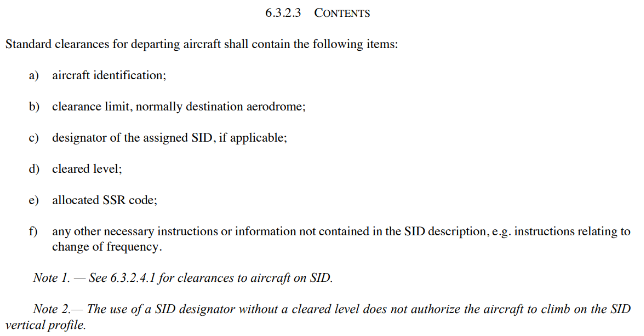Non Standard IFR Clearance
When no SID, or aircraft is unable to follow SID, a non-standard clearance must be issued.
All non-standard clearance must be coordinated with APP or CTR unless specified in LAI
The clearance must contain:
- Aircraft identification
- Callsign
- Clearance limit
- To destination aerodrome via either: Flight planned route - WP then as filed - Radar vectors (When issuing radar vectors, the entire trip will be via vectors only. Only issue this if specially coordinated with APP/CTR)
- Cleared Level
- Initial climb
- Allocated SSR code
- The squawk
- Other information
- Any practical information i.e. other runway for departure than stated in ATIS, maintain runway heading, follow standard noise abatement...
Based on this a clearance out of EKRK could be:
"OYDDA cleared to EDDH via MAXEL, KOPEX then as filed. Climb initially 5000 ft. level change en-route, squawk 1234"
Or in EKYT:
"SAS123 cleared to EKCH via TNO, climb FL120 level change en-route, squawk 1234. After departure runway 08L follow standard noise abatement procedure."
Here TNO is the only WP in the flightplan, and only valid for EKCH & EKRK, hence no then as filed after the WP.
Or in EKAH:
"RYR4EX cleared to Stansted via Flight Planed Route, climb FL060 expect level change en-route, squawk 1234."
Or in EKEB (AFIS):
"DTR1 Copenhagen Control clears you to EKCH via Flight Planned Route, Initial climb FL050 squawk 1234. After departure runway 26, right turn to ABINO."
As EKEB is an AFIS the clearance has to go via the overlaying EKDK sector, hence the "Copenhagen Control cleares you to..."
If an Aircraft wants to perform IFR Circuts a Non-std clearance must be issued as well.
An example in EKCH, could be:
"NSZ8938 cleared to Copenhagen via radar vectors, climb 3000 ft. squawk 1234. After departure maintain runway heading."

